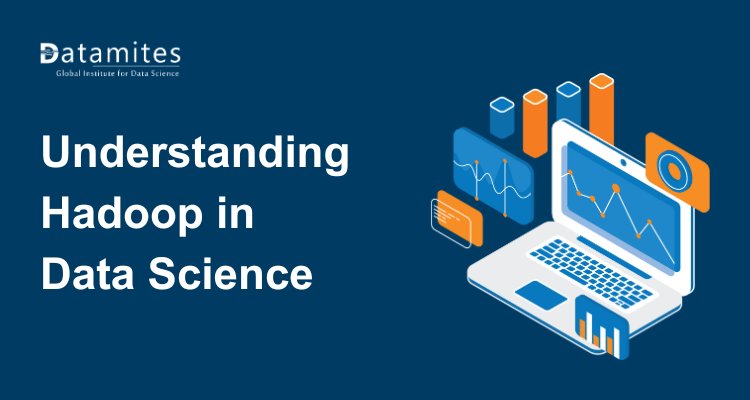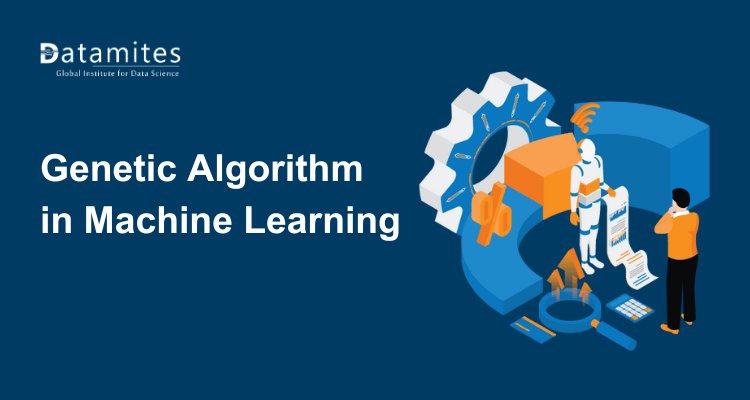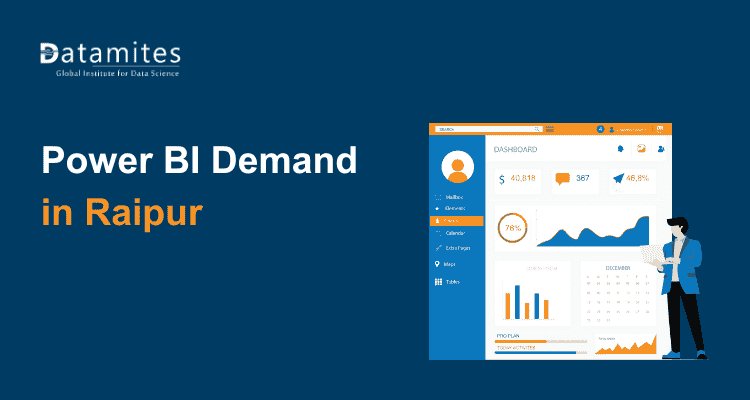Understanding Hadoop in Data Science: Definition and Real-World Uses
Hadoop is a powerful framework in data science that handles big data storage and processing, enabling industries to analyze vast datasets and drive smarter, real-world decision-making.

In today’s digital-first world, the amount of data generated every second is staggering. From online shopping to healthcare records and social media activity, the world is producing information at an unprecedented rate. This exponential growth of data has fueled the rise of Data Science, which focuses on extracting insights and making better decisions using large datasets.
But here’s the challenge, traditional systems can’t handle the massive scale of Big Data efficiently. That’s where Hadoop in Data Science comes into play. Hadoop is a powerful open-source framework designed to store, process, and analyze enormous amounts of structured and unstructured data. Whether you’re a beginner exploring a career in Data Science or a professional wanting to understand how tools like Hadoop support industries, this guide will give you a clear, non-technical overview.
What is Hadoop?
Hadoop is an open-source framework that stores and processes huge volumes of data by using clusters of low-cost machines instead of a single powerful computer. It’s widely used in Data Science because it can handle structured, semi-structured, and unstructured data efficiently by breaking it into smaller chunks and processing them in parallel.
Inspired by Google’s research on distributed systems, Hadoop was created in 2005 by Doug Cutting and Mike Cafarella for the Nutch search engine project. Later adopted by the Apache Software Foundation, it has grown into one of the most important Big Data tools used worldwide.
In simple terms, Hadoop acts like a team of computers working together to manage tasks too big for one system. Its significance is evident, IMARC Group reports the global Hadoop market was $129–$141 billion in 2024 and is projected to cross $1.5 trillion by 2033, cementing its place as a core enterprise data platform.
Why Hadoop Matters in Data Science
For professionals and learners curious about applications of Data Science, understanding Hadoop is essential. Here’s why:
- Handles Big Data Efficiently: Hadoop can process massive volumes of structured, semi-structured, and unstructured data, which is essential for modern data science applications.
- Scalability: It allows organizations to add more servers as data grows, making it flexible and future-ready for expanding datasets.
- Fault Tolerance: Even if a machine fails, Hadoop ensures data is replicated across servers, keeping information safe and accessible.
- Cost-Effective: Runs on affordable commodity hardware instead of expensive supercomputers, making it budget-friendly for enterprises.
- Supports Variety of Data: Works seamlessly with different data types, text, images, videos, logs, crucial for data science tools and analytics.
- Backbone of Data Science Projects: Powers large-scale projects in areas like fraud detection, recommendation systems, and healthcare research.
- Career Value: Learning Hadoop equips professionals with in-demand data science skills, boosting opportunities for a successful data science career.
In short, Hadoop bridges the gap between raw data and meaningful insights, supporting industries across the globe.
Refer to these articles:
- Top Data Extraction Tools to Streamline Your Data Collection
- The Simplest Way to Learn Probability for Data Science
- Why Cloud Computing Skills Are Important for Data Scientists
Core Components of Hadoop
To make Hadoop easier to understand, let’s look at its four main components:
HDFS (Hadoop Distributed File System)
HDFS stores large datasets across multiple machines, splitting them into smaller blocks. It ensures data is accessible even if one server fails.
MapReduce
This is Hadoop’s processing engine. It breaks down big tasks into smaller ones and runs them in parallel across the cluster, saving time and resources.
YARN (Yet Another Resource Negotiator)
YARN manages resources in the Hadoop ecosystem, ensuring tasks are assigned efficiently across machines.
Hadoop Common
This includes libraries and utilities that support all the other Hadoop modules.
Together, these components make Hadoop a robust and reliable Hadoop framework for handling Big Data.
Real-World Uses of Hadoop in Data Science
The applications of Hadoop in Data Science span almost every industry. Here are some examples of how it’s used:
E-commerce
E-commerce platforms like Amazon and Flipkart use Hadoop to analyze massive customer datasets. It powers recommendation systems, improves user experiences, and helps manage inventory efficiently.
Banking & Finance
Hadoop is widely used in fraud detection, risk management, and customer analytics. By processing millions of transactions daily, banks can detect suspicious patterns in real-time.
Healthcare
In healthcare, Hadoop helps manage patient records, clinical trial data, and hospital information systems. It supports predictive analytics for disease prevention and personalized treatment plans.
Social Media
Platforms like Facebook and Twitter rely on Hadoop for sentiment analysis, user behavior insights, and trend predictions. It helps brands understand customer preferences better.
Government & Public Sector
Governments use Hadoop for large-scale data storage, census data analysis, and public safety monitoring. It enables more data-driven policy-making.
These real-world examples of Hadoop highlight why it’s such an integral part of modern data science applications.
Refer to these articles:
- How to Deploy Your First Data Science Project on the Cloud
- Introduction to Spark: A Key Module in Advanced Data Science
- Impact of Automation on Data Science Jobs
Advantages of Using Hadoop in Data Science
There are multiple benefits of Hadoop in Data Science:
- Cost-Effective: Uses low-cost commodity hardware instead of expensive servers.
- Scalable: Can easily grow by adding more machines as data increases.
- Flexible: Handles structured, semi-structured, and unstructured data.
- Fast & Efficient: Processes data in parallel, reducing time and boosting performance.
- Reliable & Fault-Tolerant: Replicates data across servers, ensuring no data loss if a machine fails.
- Supports Diverse Applications: Widely used in industries like e-commerce, banking, healthcare, and social media.
- Foundation for Data Science Careers: Provides skills in Big Data tools that are in high demand for data science training and career growth.
Limitations of Hadoop in Data Science
While Hadoop is powerful, it is not without challenges:
- Not Ideal for Small Data: Hadoop is designed for Big Data; using it for small datasets can be inefficient.
- Complexity: Requires specialized knowledge of data science tools and the Hadoop ecosystem.
- Steep Learning Curve: Beginners may struggle without proper data science training.
- Latency Issues: Hadoop’s MapReduce model is not always suitable for real-time analytics.
- High Storage Needs: Data replication for fault tolerance increases storage requirements.
- Resource-Intensive: Demands significant computing power and memory to perform optimally.
- Maintenance Overhead: Managing and monitoring large Hadoop clusters can be challenging.
Refer to these articles:
Future of Hadoop in Data Science
As the future of Data Science evolves, Hadoop is integrating with advanced technologies like Artificial Intelligence (AI), Machine Learning (ML), and Cloud Computing. This makes Hadoop more versatile and powerful, ensuring its relevance in the years to come.
Organizations are increasingly blending Hadoop with tools like Spark, cloud-based platforms, and predictive analytics to keep up with new data science trends.
For learners, this means mastering Hadoop opens doors to exciting opportunities and helps you become a Data Scientist equipped with in-demand data science skills.
Hadoop has transformed the way industries handle Big Data. From e-commerce to healthcare and public services, its applications in Data Science are limitless. Despite some limitations, Hadoop continues to be a cornerstone of the Hadoop framework for businesses worldwide.
If you’re planning to pursue a Data Science career, learning Hadoop can give you a competitive edge. Many professionals start with an Data Science course in Bangalore or online programs from the best Data Science institute, where Hadoop and other data science tools are covered in detail.
The demand for skilled professionals who can manage Big Data is only rising. Whether you’re just starting or looking to upgrade your expertise, exploring Hadoop uses in Data Science is a step toward a promising future.
Recognized as one of the leading institutes in Data Science education, DataMites has earned a strong reputation for helping professionals transition into tech-driven careers. With a curriculum tailored to industry demands, hands-on projects, live internship opportunities, and dedicated placement support, DataMites bridges the gap between classroom learning and real-world practice. This career-focused approach gives learners a clear competitive edge when pursuing a successful career in Data Science.
DataMites Institute offers a Certified Data Scientist course that is globally recognized and accredited by IABAC and NASSCOM FutureSkills. The institute also provides a wide range of specialized programs, including Artificial Intelligence, Machine Learning, Python Development, and Data Analytics. Through a blend of expert instruction, practical learning, and dedicated career support, DataMites equips learners with both in-depth knowledge and the industry readiness needed to excel in the field.
DataMites delivers offline Data Science training in major Indian cities including Data science courses in Hyderabad, Bangalore, Pune, Chennai, Ahmedabad, Coimbatore, and Mumbai, while also providing flexible online training options for international learners and working professionals. Whether you’re just starting your journey or looking to upgrade your skills, DataMites emphasizes practical, career-ready training to help you succeed in today’s fast-evolving Data Science landscape.





